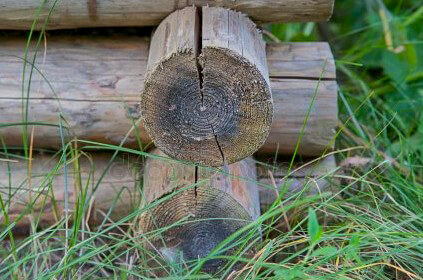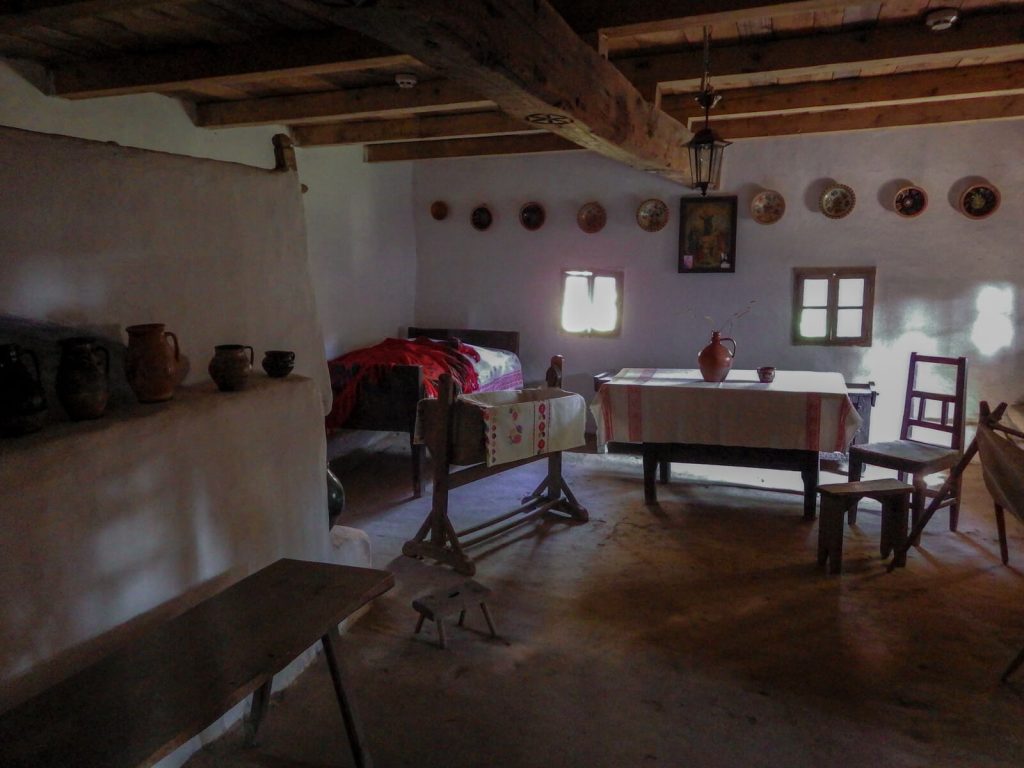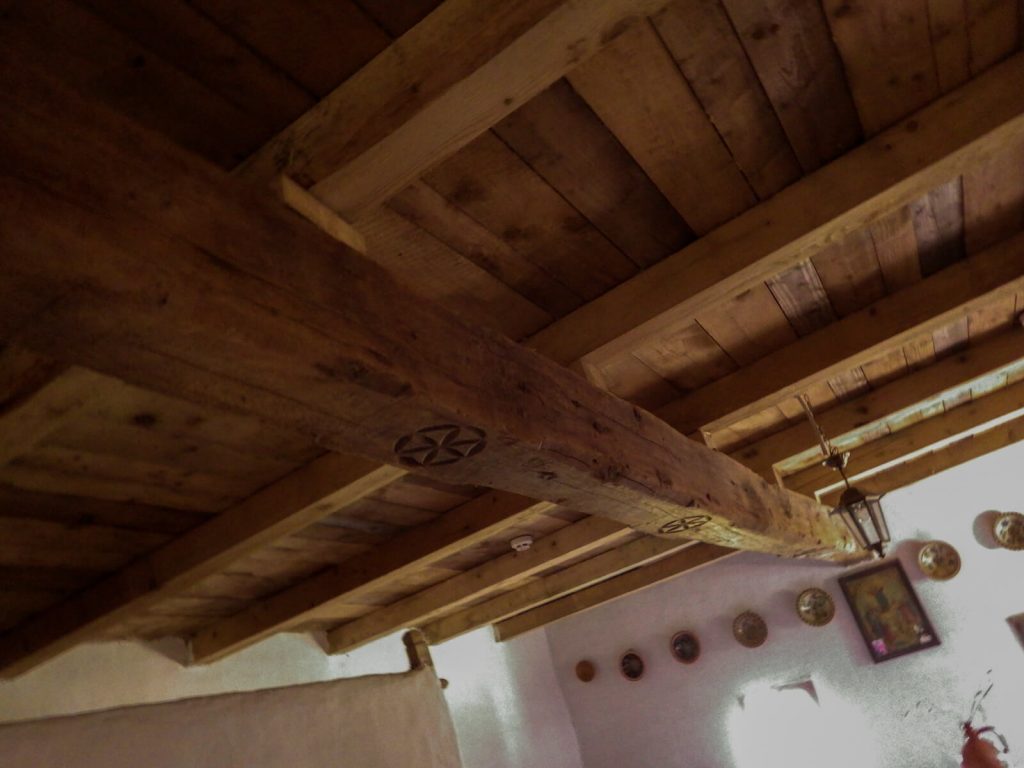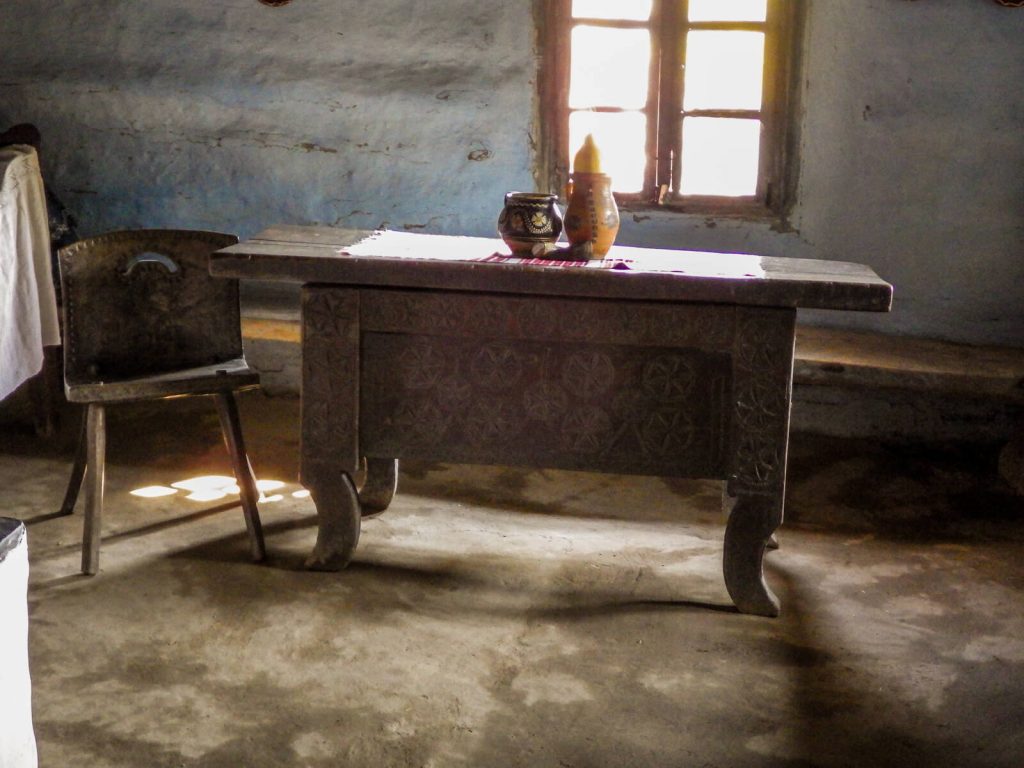Individual rites and customs were performed at the bookmark the lower crown of the log-abutments (“bases“, “ovaries”). Throughout the territory of Transcarpathia, it was a common custom to put money in connection with corners, so that housing was rich and in abundance. Most often, this rite was performed by the chief master, who took off his hat and said at the same time: “So that this house will never be abandoned by money and other goods.”
In some villages in” savasini ” the peasants invited the priest who place, assigned to the building, ” sent prayers.” After that, the master, together with the gathered relatives, close neighbors and acquaintances, laid the longitudinal abutments, then laid the transverse ones on them in the cut-out carbs. Before tying the foundations, he took a ransom from the owners – “a quart or half a quart of vodka”, “zatinal” foundations “for all good” – both for people and for livestock. After the” stuttering ” of the abutments, the master threw the axe to the ground and together with the people laid the cross abutments.
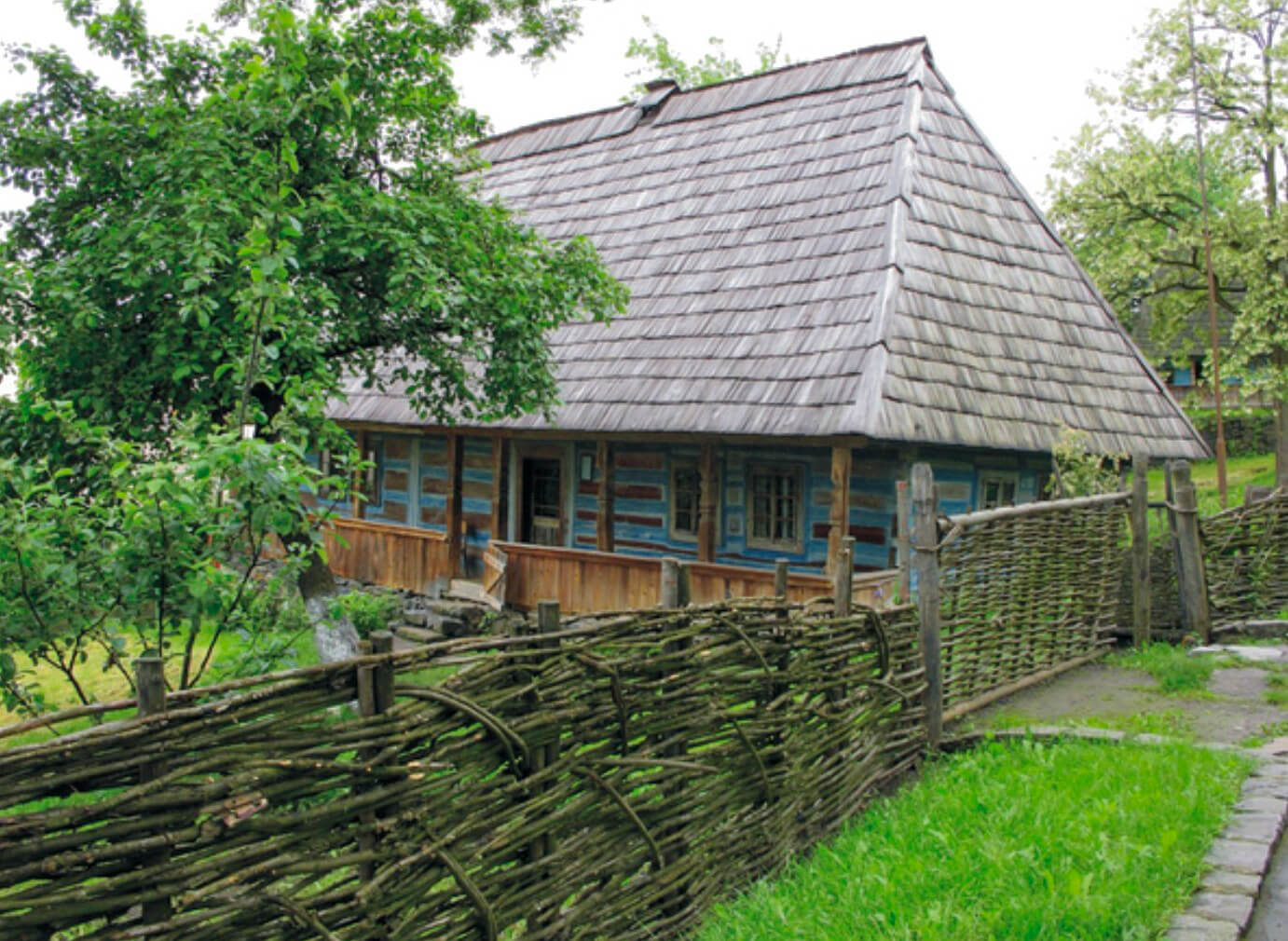
How Oberegs from evil forces put in connection with the lower crown also “Holy” water,” Holy ” wheat, and in the villages Rakhivs (Yasinya, Lazeschina, Black Yew tree,Stebnyi, Keveliv) – wool (“that sheep was conducted”). In these villages, as well as in the villages of Kalnik, Scoretv, Kuzmino, Medvedivka Mukachevo districtin the corners were placed cloves of “boiled” garlic and eggshells.
So that the residents of the house are healthy, cheerful, happy, in some areas(Irshavsky, Mukachevsky) in the corners put broken glass, because it does not rot and does not decompose. Glass also wards off unclean spirits. Broken glass as a symbol of happiness is known to many peoples.
In the villages of irshavsky (Belki, Imstichevo, Osiy) district, those who wanted to have a large family or a lot of girls, put a comb in connection with the corners. The comb was also put in the construction of outbuildings (sheds) to rozplodzhuvalas cattle and were born, first of all, females.
Often incense or Proskura (“Daru”) was placed in connection with the corners. It was mandatory to cut out crosses as amulets on the connections of the corners of the lower crown or cross in one of the corners.
In village. Novoselka Intermountain R-nu Transcarpathian region. there was a custom – all the longitudinal and transverse tram laid at the same time, after tying them could not be solved, because in a house built on the untied tram, “was not conducted”, “there was no happiness”, “all conception is not dokinchuvalis”. In each corner of the house in karby, “where the tram on the tram” rested, put different things, based on the belief that they will bring good to the house.
На Hutsul region when the senior master first cut on the cross, everyone listened carefully, if margina (cattle) responded, it was a good sign. If the rooster sang (“sang”), then it was a sign to the fire, then the crown was moved to another place or the rooster was cut down and put under the base of the house as a building sacrifice.
We also observed Where the first chip will fall, if inside the house, then good he’ll stay at home. And if a splinter fell out, it was an evil sign and it was necessary then to buy this cod ” from the master, make a cross out of it and bury it in the place of honor (the place where the table should be and the corner of honor).
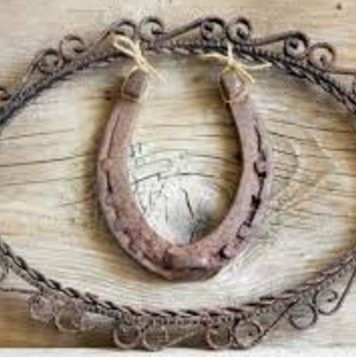
After laying the foundations, the owner treated the masters and their assistants. In ancient times, guests made on the front Foundation, and since the end of the XIX-beginning of the XX century. – on the table that the owner put in the middle of the future house. According to popular belief, the more generous the table, the more prosperity will be in the house, and ” the cattle will be kept, and the children will be healthy.”
On” based ” the owner invited neighbors who brought with them a “roll” of bread, grain, flour. Some of those invited stayed on Toloka for one day or more. When the neighbors went to their homes, the masters took to laying the walls of the new house.
According to popular belief, the more generous the table, the more prosperity Rites and customs Charms against the evil forces



